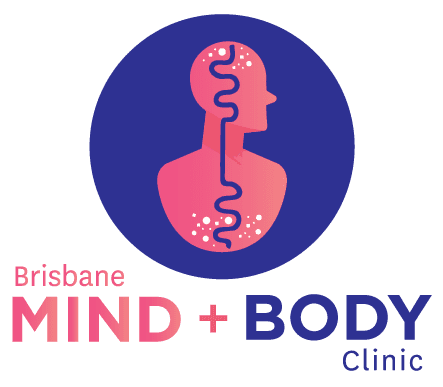What Are Psychological Therapies? Are they effective for Successful Pain Management?
What Are Psychological Therapies? Are they effective for Successful Pain Management? Pain, in its various forms, is an intricate and all-encompassing human experience that can profoundly impact our well-being. Whether it’s physical discomfort from injury or illness or the emotional anguish that often accompanies it, effective pain management is paramount for individuals seeking to regain control over their lives. The transformative power of psychological therapies in managing pain offers hope and insights to those grappling with persistent discomfort. The potential of pain management through psychology and how it can be the key to a life free from pain is miraculous. Dedicated psychologists understand the intricate connection between mind and body, and their commitment to holistic well-being is well-appreciated in the field of psychological pain management. The team of experts is dedicated to helping individuals conquer their pain, enabling them to lead more fulfilling lives. With a deep understanding of the profound impact of psychological therapies on pain management, they have developed a unique approach that integrates the best practices in psychology to address pain from its core. The Psychology of Pain Pain is not solely a physical sensation but a complex and multifaceted phenomenon deeply intertwined with our psychological and emotional well-being. Understanding the psychology of pain is essential to grasp how our minds play a pivotal role in the perception and management of pain. Exploring Psychological Factors in Pain Perception Pain perception varies widely among individuals, and it’s not solely determined by the severity of an injury or the extent of tissue damage. Psychological factors can significantly influence how we experience pain. These factors include: Emotions: Fear, anxiety, stress, and depression can amplify pain perception. For instance, when you’re anxious about a medical procedure, your anticipation of pain can make it feel more intense. Expectations: Beliefs and expectations about pain can shape our experience. If we believe a treatment will be effective, it can reduce pain, a phenomenon known as the placebo effect. Attention: The amount of attention we devote to pain can impact its intensity. When we focus intensely on pain, it often feels worse. Distraction techniques, on the other hand, can reduce perceived pain. Cognition: Our thoughts and cognitive processes play a vital role. Catastrophising — exaggerating the severity of pain—can intensify it, while positive thinking and coping strategies can mitigate it. The Mind-Body Connection in Pain Management The mind-body connection is a fundamental concept in understanding pain management. It acknowledges that our mental and emotional states directly impact our physical well-being. This connection forms the basis of many psychological pain management approaches. Pain Management through Psychology The effectiveness of psychological therapies becomes evident within this intricate interplay of psychological factors and pain. Psychological therapies, such as Cognitive Behavioral Therapy (CBT), Mindfulness-Based Stress Reduction (MBSR), and Acceptance and Commitment Therapy (ACT), are designed to address pain from its psychological roots. These therapies don’t just mask the pain; they equip individuals with the tools to understand, cope with, and even reduce pain. By addressing the emotional and cognitive aspects of pain perception, they empower individuals to regain control over their lives. Psychological Therapies for Pain Management In our quest for effective pain management, psychological therapies are formidable allies. These therapies address the physical symptoms and delve into the underlying psychological factors influencing pain perception and endurance. Cognitive Behavioral Therapy (CBT) Cognitive Behavioral Therapy (CBT) is a widely acclaimed psychological therapy that has consistently demonstrated its efficacy in pain management. It is grounded in the idea that our thoughts, emotions, and behaviours are interconnected, and altering negative thought patterns can improve pain outcomes. CBT equips individuals with practical tools to identify and challenge unhelpful thoughts about their pain. By replacing these thoughts with more constructive ones, patients can experience reduced pain perception and improved quality of life. For example, someone with chronic back pain might believe they are entirely disabled. They can learn to challenge this belief through CBT and gradually resume physical activities. Mindfulness-Based Stress Reduction (MBSR) Mindfulness-Based Stress Reduction (MBSR) is rooted in mindfulness meditation practices. It teaches individuals to be fully present in the moment, non-judgmentally, and cultivate an awareness of their bodily sensations, thoughts, and emotions. Individuals can reduce their perception of pain by training the mind to be present and non-judgmental. Studies have shown that mindfulness can alter the brain’s response to pain signals, promoting a sense of control over one’s suffering. MBSR has shown remarkable success in reducing pain intensity and improving pain-related quality of life. By promoting relaxation and reducing stress, MBSR can alter pain perception. Research has indicated that practising mindfulness can even change the brain’s response to pain, making it a valuable tool in pain management. Acceptance and Commitment Therapy (ACT) Acceptance and Commitment Therapy (ACT) focuses on accepting pain as a part of life rather than attempting to eliminate it. ACT emphasises values and encourages individuals to commit to actions that align with their values, even in pain. ACT can empower individuals to lead fulfilling lives despite pain. For example, a person with chronic arthritis might engage in meaningful activities like painting or spending time with loved ones, even when experiencing discomfort. This shift towards valued actions can improve psychological well-being and reduce pain interference. Biofeedback Biofeedback is a therapeutic technique that teaches individuals to control physiological functions, such as heart rate, muscle tension, and skin temperature, which are typically involuntary. Individuals can learn to modify these functions by providing real-time feedback through sensors. In psychological pain management, biofeedback can help individuals gain control over physical responses associated with pain. For instance, biofeedback can reduce muscle tension, which is often a source of pain or exacerbates it. By learning to relax muscles consciously, individuals can experience decreased pain intensity. Hypnotherapy Hypnotherapy involves inducing a trance-like state in which individuals are highly focused and open to suggestion. While in this state, individuals work with a trained hypnotherapist to address pain-related issues. Hypnotherapy can be particularly effective for managing chronic pain conditions. Studies have shown that it can significantly reduce






